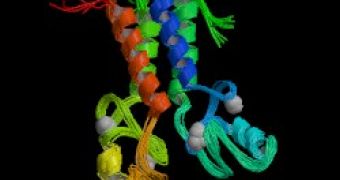They are both involved in sex, and a recent research signals another common point: the same killer mutation induces aggressive cancers in these organs.
One in six men is hit by prostate cancer and annually 28,000 men die of prostate cancer in the US alone. But a mutation of the gene BRCA2 - previously known to increase the risk of breast cancer - can radically affect the survival chances for men with prostate cancer, killing them a decade earlier than in the case of the common version of the gene.
BRCA2 was identified in 1995, and women carrying the mutated variant of BRCA2 or the related BRCA1 gene are seven times more likely to develop breast cancer. Men carrying the mutated BRCA2 are now known to be twice more predisposed to prostate cancer, and six times more prone to develop pancreatic cancers than in the case of the common allele (gene variant).
Now a team led by Laufey Tryggvadottir at the Icelandic Cancer Registry in Reykjavik investigated how BRCA2 mutation impacted the prostate cancer development. "When doctors conduct autopsies of elderly men who have died from a wide range of causes, including traffic accidents, they find cancerous prostate cells in two-thirds of these men. But only a fraction of men die as a result of prostate tumors: The big challenge today is how to distinguish between a lethal cancer and a harmless one." said Tryggvadottir.
The team analyzed prostate cancer biopsies data from 527 patients, gathered over the past decades. By analizing the DNA in these samples, the team discovered that 30 of the men tested positive for the BRCA2 mutation, called 999del5. Men carrying the mutation presented an average survival time of 2.1 years after diagnosis, while those with the common gene survived 12.4 years on average. Those carrying the mutation were diagnosed at an average age of 69, by 5 years earlier than those lacking the mutation.
That's why the researchers advise that men with cases of BRCA2-related breast cancer in their family to make a prostate screening at age 45, while the generally recommended age is 50. "Having a faulty version of the BRCA2 gene makes cancer more likely because the gene encodes for a protein involved in DNA repair." said Tryggvadottir.
When a man presents high amounts of prostate-specific antigen (PSA), doctors will make a biopsy of the prostate. If DNA inside the prostate cells looks relatively normal, a period of "watchful waiting" will follow, as prostate surgery is extremely risky, since its possible side effects encompass impotence and urinary incontinence.
Early surgery and chemotherapy can impede the tumor from going out of the prostate and invading the body. The mutation is estimated to be carried by about 0.5% male population worldwide. "While the overall percentage of men who have the mutation is small, these men likely represent a large number of those with lethal prostate cancer.", said Tryggvadottir.

 14 DAY TRIAL //
14 DAY TRIAL //